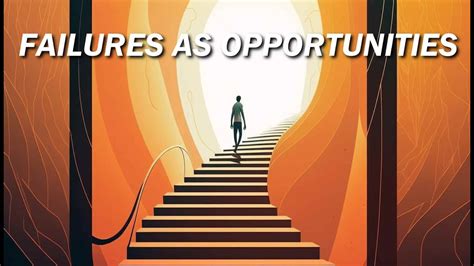In life, setbacks are inevitable. Whether it’s a project that didn’t go as planned, a career move that faltered, or a personal goal that remained unmet, everyone encounters moments that feel like failure. However, the true power lies not in avoiding these moments, but in how we choose to interpret and react to them. This article will explore how to cultivate a mindset that reframes failure not as an endpoint, but as a crucial stepping stone on the path to success and continuous learning.
The Power of Perspective Shift
Our perception shapes our reality. When we view failure through a negative lens, it can lead to demotivation, self-doubt, and an unwillingness to try again. Conversely, adopting a growth mindset—a concept popularized by psychologist Carol Dweck—allows us to see challenges and failures as opportunities for growth. This shift in perspective is fundamental to transforming setbacks into invaluable learning experiences.
It’s about understanding that abilities and intelligence can be developed through dedication and hard work, rather than being fixed traits. When failure is seen as a data point rather than a personal indictment, the emotional charge diminishes, making room for objective analysis and constructive action.

Understanding the Growth Mindset
A fixed mindset believes that talent alone dictates success, and failure is proof of inadequacy. A growth mindset, however, thrives on effort and views failure as essential feedback. It encourages persistence, teaches humility, and fosters a desire for continuous improvement. People with a growth mindset are more likely to embrace challenges, learn from criticism, and find inspiration in the success of others.
To cultivate this mindset, begin by challenging your internal dialogue. When faced with a setback, instead of thinking, “I’m not good enough,” try, “What can I learn from this?” or “How can I approach this differently next time?” This simple shift can dramatically alter your emotional and psychological response.
Practical Steps to Reframe Failure into Learning
1. Acknowledge and Analyze
Don’t suppress the feeling of disappointment or frustration. Acknowledge it, but don’t dwell. Once the initial emotions subside, move to analysis. What went wrong? What were the contributing factors? What part did you play? This isn’t about assigning blame, but about understanding the mechanics of the situation.
2. Separate Self from Outcome
Your worth is not defined by a single outcome. A failed attempt does not make you a failure. Separate your identity from the result. This allows you to evaluate the situation objectively without personalizing the setback.

3. Focus on Process, Not Just Result
Often, we focus too much on the end result. Shift your attention to the process. Were your strategies effective? Were your efforts consistent? By dissecting the process, you can identify areas for improvement in your approach, rather than just lamenting the outcome.
4. Extract Lessons Learned
This is the most critical step. For every setback, there are valuable lessons to be extracted. Write them down. What new knowledge did you gain? What skills did you develop? What would you do differently if given the chance? These lessons are your actual gains from the ‘failure’.
5. Plan for Next Steps
Learning is incomplete without application. Based on the lessons learned, formulate a new plan of action. What adjustments will you make? What new strategies will you employ? This forward-looking approach transforms a past negative experience into a blueprint for future success.

Cultivating Resilience
Reframing failure into learning is an act of resilience. It’s about bouncing back stronger, smarter, and more determined. Every time you successfully navigate a setback and extract its lessons, you build your capacity for resilience. This cumulative experience makes you more robust and better equipped to handle future challenges.
Surround yourself with people who share a growth mindset and encourage a culture of learning from mistakes. Celebrate small victories, including the lessons learned from difficulties. Over time, you’ll find that what once felt like a devastating failure now feels like a valuable lesson, integral to your journey.

Conclusion
Failure is not the opposite of success; it is a part of success. By actively choosing to reframe setbacks as learning opportunities, you unlock immense potential for personal and professional growth. Embrace the challenges, learn from every experience, and watch as your journey unfolds with greater wisdom, resilience, and ultimately, greater achievement. The path to mastery is paved with lessons, and many of the most profound ones come disguised as failures.




